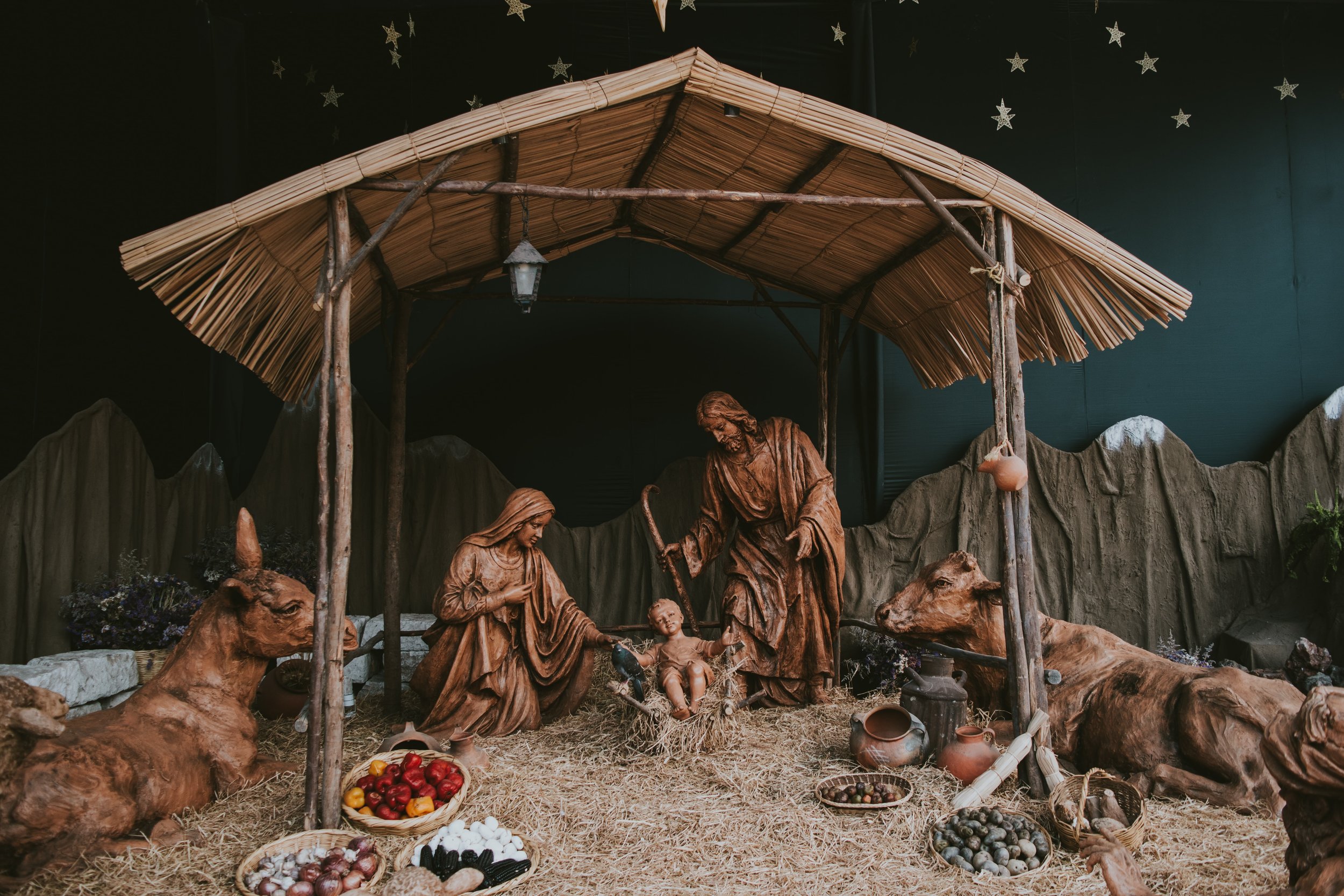We have practiced silence. We have listened for the voice of the Spirit. We have put pen to paper, brush to canvas, spade to soil, knitting needles to yarn. Now what?
Read MoreIn the next three blog posts, we will consider what I call “the creative act.” Before we dive in, let’s ask a question that may seem obvious: What is the creative act?
Read MoreIn our previous post, we talked about the extending of the horizon of the old covenant Sabbath through the Resurrection of our Lord, how He makes that Sabbath the occasion for a new work through His rising again. As should be apparent by now, the Sabbath means something very different for the Christian than it meant for the Jew, even if they are continuous with one another in the Person of Christ. It will help if we look to the Gospels for guidance.
Read MoreSabbath is remembrance. It is to remember and anticipate through a moment the world of God’s great seventh day, of Creation as it is known with God enthroned, consecrating all things and celebrating them with delight. But modern people have a difficult time approaching remembrance because they consider it a matter of ‘thinking’ rather than ‘being.’ This is not how the Scriptures communicate ‘remembrance’ to us.
Read MoreWe closed Part I by thinking about the futility of our toil and how it can only deliver expiration and collapse rather than real rest. We came to understand that we must somehow be returned to the Lord’s anointed rest, that seventh day of Creation that consecrated the whole creative work. I would like to propose that the means by which we are led back into that rest, despite our continual tendencies to avoid it, is to attend to the remembrance of the Sabbath as it becomes the Eucharist through its fulfillment in Christ. In this post, we will take a look at the first of the two.
Read MoreAs a recovering work-addict, I have been obliged to a keen awareness of the patterns of work and leisure that surround me. Frustratingly, I have often felt like a recovering alcoholic living in a walk-up above pub row, immersed in the ambient noise of what I imagine to be great enjoyment and satisfaction happening just downstairs. All around me are impulses to feed a beast who is just biding the time it needs to grow large enough to feed on me. Like those who’ve struggled with any substance or habit will know, the addiction isn’t about the thing but about something else behind, beneath, beyond it.
Read MoreLet us summarize three important points from the previous posts. First, the church year is the way the church experiences the true meaning of time that was revealed in the covenant God made with Israel, in the light of the fulfillment of both time and the covenant by Jesus Christ, the Son of God and Messiah of Israel. Second, this experience of time is rooted in the dynamic relationship between fulfillment and expectation, between the current experience of the kingdom "in the Spirit" and the longing for its fulfillment in the coming of Christ. Third, this experience of time requires commitment to disciplines of prayer that are rooted in the church year.
Read MoreThe life of Jesus Christ changed the way the people of God experience time. Jewish weekly time was rooted in six days of work leading to a Sabbath. Holy Week narrates Jesus’ fulfillment of this time. He entered Jerusalem on Palm Sunday, the first day of the week. He finished his work on Friday, the sixth day. This is the primary meaning of the words “It is finished” (John 19:30). The word “finished” is a form of the word “teleo” which is related to “telos.” On the cross, both time and the covenant were brought to their completion.
Read MoreIn Part I, we started by acknowledging the many ways we attempt to make peace without being born again to the life of God the Trinity, without seeking earnestly to enter peace in the rest of God the Father by being conformed to the likeness of Jesus the peacemaker and the Spirit the peace-giver. In Part II, we approached and considered again the Person of Jesus, He who is the peacemaker, seeking understanding of how He enables and empowers us to know the peace of God again. In this third and final essay, I think it is now possible for us to talk about what it means to be makers of peace like Him in the world.
Read MoreAs we come to terms with how we’ve attempted to create false peace, we begin to yearn for the true thing. Shalom, true peace, is the creation of God, the quality of life known by all things that walk in step with His will. We cannot make peace for ourselves. It is given, and we must receive it by the terms that it is given. We must enter into it and participate in it with a sense of humility and wonder.
Read MorePeace is a concept that emerges clearly in the Biblical account of Creation. The poetry of Genesis characterizes the creation of the cosmos as God making a dwelling place for Himself. Each part of the creation story involves a kind of call-and-response as God makes a place and then fills it with life, calling each of these dwellings and dwellers “good.” On the seventh day, when God takes His rest, it is meant to invoke an image that would have been common to those familiar with the architecture of an ancient temple: the god seated in the center of the temple to consecrate it and inaugurate its operation.
Read MoreLike all real and good things that take practice, prayer doesn’t always come easily. In fact, as we grow in prayer, we can expect to have seasons where it is downright difficult to pray. There are a lot of reasons for this. When the newness of a habit begins to wear off and we settle into a pattern, we begin to experience new challenges to our disciplines of prayer. It is important for us to remember that difficulties in prayer are not necessarily a sign we are doing something wrong. In fact, experiencing difficulty in prayer can be a sign that we are doing exactly what we need to do. Here are some of the common difficulties that face a person who is learning to pray.
Read MoreForgiveness is the first shape salvation takes in our lives. Through confession we experience forgiveness from God and are initiated into the ministry of reconciliation. We are then sent out to practice this ministry, first in the Church and then in the world. I say ‘practice’ here to cut against the notion that forgiveness is something at which we are immediately skilled. Forgiveness is a journey, the steps of which sometimes take months or years each. But forgiveness is real and it can bring us freedom from the power of our wounds. For this to happen, though, we have to get real about those hurts we would most like to avoid. Forgiveness begins where we really need to forgive, or it does not begin at all.
Read MoreThis post is about a way to approach contemplative prayer. I freely admit from the outset that I am no master of this art of ultimate trust in God’s love for me. Almost twenty years into my journey as an Anglican and over thirty into my life as a Christian, I am still unlearning the engrained habits of self-sufficiency.
Read MoreWhen the Wise Men are called to seek the Christ Child, they are drawn forth in a strange way: by an unusually bright star, shining in the heavens. In Matthew 2 we are told, “Now after Jesus was born in Bethlehem of Judea in the days of Herod the king, behold, wise men from the East came to Jerusalem, saying, ‘Where is He who has been born King of the Jews? For we have seen his star in the East and have come to worship him.’” We rarely pause to acknowledge how odd this story is.
Read MoreThe terms of this satisfaction emerge in dire tones as Anselm’s treatise turns, in its second part, to his revelation of God’s salvation offered through Christ the God-man.
Read MoreMartin Thornton said of St. Anselm of Canterbury that he “occupies a place in English spirituality not unlike that of Chaucer in English letters. He is the father-founder who first brought all the essential elements together, who gave the school its clear character and stamp. In Anselm, English spiritual theology is embodied and potentially formed; formed as a young man who still needs to mature but who is no longer a child” (English Spirituality, 156). Anselm was a Benedictine monk who occupied the Archbishopric of Canterbury during the tumultuous period following the Norman Conquest at the end of the 11th Century. Like many in the English school of Catholic theology, his writings were imaginative if not always precise.
Read MoreWhen people ask what my favorite movie is, I always answer that I have two favorites, one of which is Home Alone. Some people think it’s kind of weird to have a Christmas movie as one of my absolute favorites, but I think it’s the best; I will watch it several times during this season. And the more I watch it, the more I see how this movie thoughtfully compares an Advent that is defined by overindulgence and materialism with an Advent characterized by penitence and reconciliation.
Read MoreIt is a gift to be able to create. As human beings, we have been given the ability to imitate our Creator by exercising and developing our creativity. God creates from the beginning, bringing out of what is formless and void, giving it design, structure, function, and purpose. We create out of what God has made and entrusted to us, ordering our little worlds after the order, or logos, by which He made the heavens and the earth.
Read MoreWhen I was eighteen, my home life and family of origin underwent a sudden change from which it never really recovered. I still remember the lurch of what I thought was permanent and untouchable suddenly shifting under my feet. Like Lewis, I felt afraid. I felt cut off, even when surrounded by people. I felt deaf to the words they were trying to say to make me feel better, and even when their words got through, part of me still wanted their kind words to just go away. Yet I was terrified of being alone. Starting to sound familiar?
Read More



















